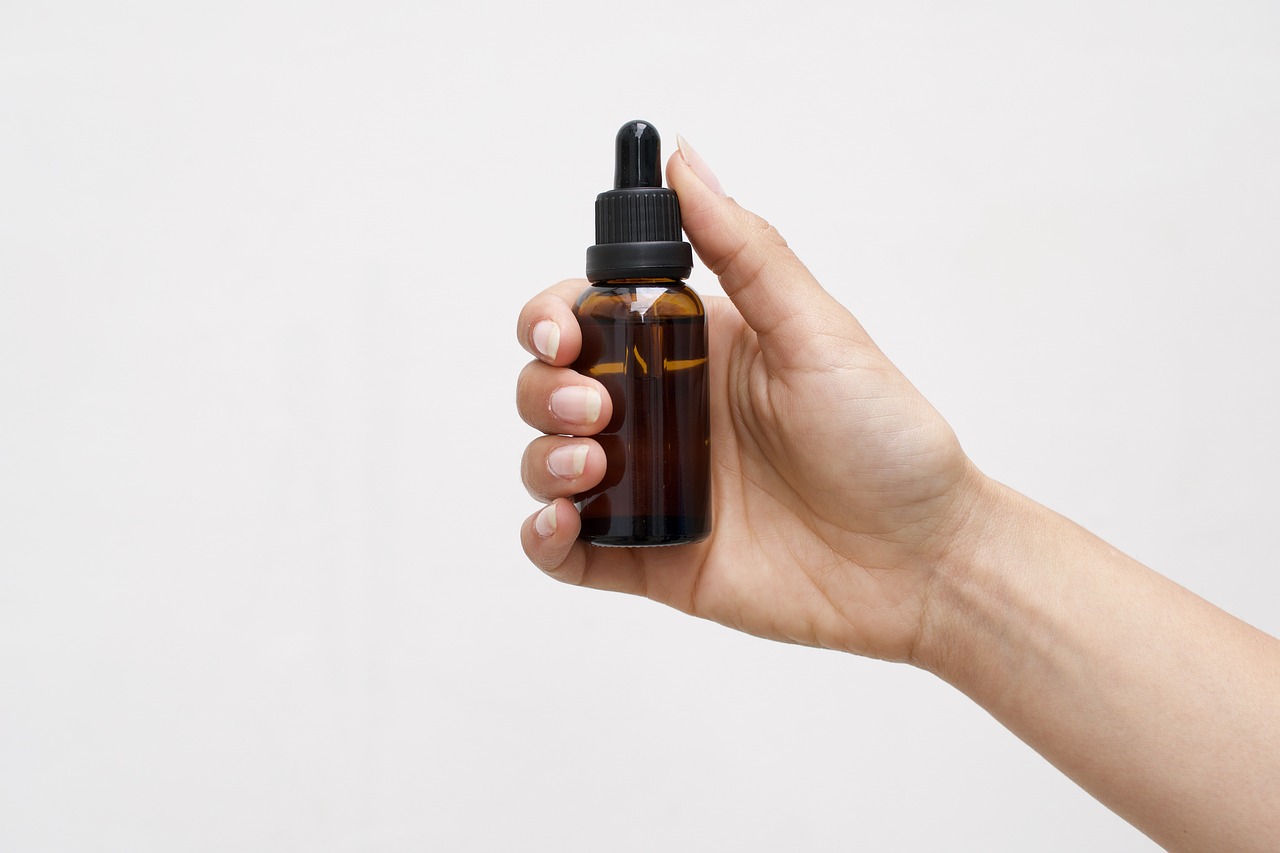This article delves into the multiple advantages of L-Tryptophan, an essential amino acid that significantly impacts both mood and sleep quality. Understanding how to incorporate this nutrient into your diet can lead to enhanced emotional well-being and improved rest.
What is L-Tryptophan?
L-Tryptophan is an essential amino acid that the body cannot produce on its own, making it vital to obtain through diet. It serves as a precursor to serotonin, a neurotransmitter that plays a crucial role in regulating mood and sleep. By understanding its function, one can appreciate the profound benefits it offers.
How L-Tryptophan Affects Mood
Research shows that L-Tryptophan can positively influence mood by boosting serotonin levels in the brain. This increase can lead to notable improvements in emotional stability and overall happiness.
- The Role of Serotonin: Often dubbed the “feel-good” neurotransmitter, serotonin is essential for mood regulation. L-Tryptophan contributes to its synthesis, thereby impacting mental health.
- Impact on Depression: Studies suggest that L-Tryptophan may alleviate symptoms of depression, highlighting its potential as a natural antidepressant.
- Effect on Anxiety: Anxiety disorders can be influenced by neurotransmitter levels, and L-Tryptophan may help mitigate anxiety symptoms through serotonin modulation.
Dietary Sources of L-Tryptophan
To maximize the benefits of L-Tryptophan, incorporating rich food sources is essential. Foods such as turkey, chicken, fish, eggs, and dairy products are excellent choices that can enhance your intake.
L-Tryptophan and Sleep Quality
This amino acid is also linked to improved sleep quality. L-Tryptophan promotes better sleep patterns by facilitating the production of melatonin, a hormone that regulates sleep-wake cycles.
- Mechanism of Sleep Induction: L-Tryptophan is converted to serotonin and then to melatonin, highlighting its role in sleep regulation.
- Recommended Dosage for Sleep: Finding the right dosage is crucial for sleep enhancement. Consult with a healthcare provider for personalized recommendations.
Potential Side Effects and Considerations
While generally safe, L-Tryptophan may cause side effects in some individuals. It’s essential to be aware of these and consult a healthcare professional before starting supplementation.
Conclusion: Embracing L-Tryptophan for Better Mood and Sleep
In conclusion, L-Tryptophan offers a wealth of benefits for enhancing mood and improving sleep quality. By incorporating L-Tryptophan-rich foods into your diet, you can foster better mental health and enjoy more restful nights, making it a valuable addition to any wellness routine.

What is L-Tryptophan?
L-Tryptophan is an essential amino acid that plays a vital role in the human body, particularly in the production of serotonin, a neurotransmitter that significantly influences mood and sleep patterns. This amino acid cannot be synthesized by the body, making it crucial to obtain it through dietary sources. Understanding the importance of L-Tryptophan is essential for anyone looking to enhance their emotional well-being and sleep quality.
As a precursor to serotonin, L-Tryptophan is instrumental in regulating various physiological processes. When consumed, it undergoes a series of transformations to become serotonin, which is often referred to as the “feel-good” neurotransmitter. This process highlights the direct link between L-Tryptophan intake and improved mood, making it a popular subject of interest for those seeking natural ways to combat mood disorders.
Moreover, L-Tryptophan’s role extends beyond mood regulation. It is also involved in the synthesis of melatonin, the hormone responsible for regulating sleep cycles. This dual function underscores the significance of L-Tryptophan in promoting both mental health and restful sleep.
For individuals struggling with issues such as depression or anxiety, increasing L-Tryptophan intake through diet or supplementation may offer relief. Foods rich in this amino acid include turkey, chicken, dairy products, nuts, and seeds. Incorporating these foods can be a simple yet effective strategy for enhancing overall well-being.
In conclusion, recognizing the benefits of L-Tryptophan is crucial for anyone interested in improving their mood and sleep quality. By understanding its function and ensuring adequate intake through diet, individuals can harness its potential for better mental health and restful nights.

How L-Tryptophan Affects Mood
L-Tryptophan is an essential amino acid that plays a pivotal role in maintaining emotional well-being. This section delves into how L-Tryptophan affects mood and its connection to serotonin, a neurotransmitter that significantly influences our feelings and emotional states.
When we consume foods rich in L-Tryptophan, our bodies convert it into serotonin, which is often referred to as the feel-good neurotransmitter. This conversion is crucial because serotonin helps regulate mood, anxiety, and even sleep patterns. A decrease in serotonin levels is commonly associated with mood disorders, including depression and anxiety. Thus, increasing L-Tryptophan intake can potentially enhance serotonin production, leading to improved emotional health.
Research has shown that individuals with low levels of serotonin often experience symptoms of depression and anxiety. By supplementing with L-Tryptophan or consuming L-Tryptophan-rich foods, people may notice a reduction in these symptoms. Studies have indicated that L-Tryptophan can be effective in alleviating depressive symptoms, particularly in conjunction with other treatments.
Moreover, the impact of L-Tryptophan extends beyond just mood regulation. It can also help in managing anxiety disorders. By enhancing serotonin levels, L-Tryptophan may help stabilize mood and reduce feelings of unease, promoting a sense of calm and well-being.
To harness the benefits of L-Tryptophan for mood enhancement, consider incorporating foods such as turkey, chicken, nuts, seeds, and dairy products into your diet. These foods not only provide L-Tryptophan but also offer other essential nutrients that contribute to overall health.
In summary, L-Tryptophan plays a crucial role in mood regulation through its influence on serotonin levels. By understanding its benefits and incorporating L-Tryptophan-rich foods into your diet, you can take significant steps towards improving your emotional well-being.
The Role of Serotonin
Understanding the Role of Serotonin
Serotonin, often referred to as the feel-good neurotransmitter, plays a pivotal role in regulating mood, emotions, and overall mental health. This essential chemical messenger is primarily found in the brain, intestines, and blood platelets, influencing a wide array of physiological functions.
One of the most significant functions of serotonin is its impact on mood regulation. Low levels of serotonin are commonly associated with feelings of sadness and depression. Therefore, maintaining optimal serotonin levels is crucial for emotional well-being. This is where the amino acid L-Tryptophan comes into play, as it serves as a precursor for serotonin synthesis.
When L-Tryptophan is consumed, it undergoes a series of biochemical transformations to eventually produce serotonin. This process highlights the importance of dietary intake of L-Tryptophan-rich foods, such as turkey, eggs, and nuts, which can help boost serotonin levels naturally. Moreover, research has indicated that adequate serotonin levels can lead to improved mood and a reduced risk of developing mood disorders.
In addition to mood enhancement, serotonin also plays a crucial role in regulating sleep patterns. It is a precursor to melatonin, the hormone responsible for sleep-wake cycles. Thus, ensuring sufficient serotonin levels can contribute to better sleep quality and overall well-being.
In conclusion, the role of serotonin extends beyond mere mood regulation; it is integral to various bodily functions, including sleep and emotional health. By understanding its significance and the ways to enhance its levels through diet and lifestyle choices, individuals can take proactive steps towards improving their mental health.
Image of Serotonin Structure:
feel-good
The Benefits of L-Tryptophan for Mood and Sleep
This article explores the various benefits of L-Tryptophan, an essential amino acid, highlighting its effects on mood regulation and sleep quality, along with practical insights for incorporating it into your diet.
What is L-Tryptophan?
L-Tryptophan is an essential amino acid that plays a crucial role in the production of serotonin, a neurotransmitter linked to mood and sleep. Understanding its function is key to appreciating its benefits.
How L-Tryptophan Affects Mood
L-Tryptophan is known to influence mood by increasing serotonin levels in the brain. This section examines the connection between L-Tryptophan intake and improvements in emotional well-being.
The Role of Serotonin
Serotonin, often referred to as the neurotransmitter, is vital for mood regulation. This subsection discusses how L-Tryptophan contributes to serotonin synthesis and its implications for mental health.
Impact on Depression
Research suggests that L-Tryptophan may help alleviate symptoms of depression. This part delves into studies that support its potential antidepressant effects and therapeutic applications.
Effect on Anxiety
Anxiety disorders can be influenced by neurotransmitter levels. This section explores how L-Tryptophan may help reduce anxiety symptoms through serotonin modulation.
Dietary Sources of L-Tryptophan
Incorporating L-Tryptophan-rich foods into your diet is essential for maximizing its benefits. This subsection highlights various dietary sources that can enhance your L-Tryptophan intake.
L-Tryptophan and Sleep Quality
L-Tryptophan is also linked to improved sleep quality. This section discusses how this amino acid can promote better sleep patterns and overall restfulness.
Mechanism of Sleep Induction
Understanding how L-Tryptophan induces sleep involves exploring its conversion to serotonin and subsequently to melatonin. This part explains the biochemical processes involved in sleep regulation.
Recommended Dosage for Sleep
Finding the right dosage of L-Tryptophan for sleep enhancement is crucial. This subsection provides guidelines on effective dosages based on research and expert recommendations.
Potential Side Effects and Considerations
While L-Tryptophan is generally safe, it’s important to be aware of potential side effects. This section discusses possible adverse effects and considerations for individuals considering supplementation.
Conclusion: Embracing L-Tryptophan for Better Mood and Sleep
In conclusion, L-Tryptophan offers numerous benefits for mood enhancement and sleep quality. Incorporating it into your diet can lead to improved mental health and restful nights, making it a valuable addition to wellness routines.
neurotransmitter, is vital for mood regulation. This subsection discusses how L-Tryptophan contributes to serotonin synthesis and its implications for mental health.
The Benefits of L-Tryptophan for Mood and Sleep
This article explores the various benefits of L-Tryptophan, an essential amino acid, highlighting its effects on mood regulation and sleep quality, along with practical insights for incorporating it into your diet.
What is L-Tryptophan?
L-Tryptophan is an essential amino acid that plays a crucial role in the production of serotonin, a neurotransmitter linked to mood and sleep. Understanding its function is key to appreciating its benefits.
How L-Tryptophan Affects Mood
L-Tryptophan is known to influence mood by increasing serotonin levels in the brain. This section examines the connection between L-Tryptophan intake and improvements in emotional well-being.
The Role of Serotonin
Serotonin, often referred to as the feel-good neurotransmitter, is vital for mood regulation. This subsection discusses how L-Tryptophan contributes to serotonin synthesis and its implications for mental health.
Impact on Depression
Research suggests that L-Tryptophan may help alleviate symptoms of depression. This part delves into studies that support its potential antidepressant effects and therapeutic applications.
Effect on Anxiety
Anxiety disorders can be influenced by neurotransmitter levels. This section explores how L-Tryptophan may help reduce anxiety symptoms through serotonin modulation.
Dietary Sources of L-Tryptophan
Incorporating L-Tryptophan-rich foods into your diet is essential for maximizing its benefits. This subsection highlights various dietary sources that can enhance your L-Tryptophan intake.
L-Tryptophan and Sleep Quality
L-Tryptophan is also linked to improved sleep quality. This section discusses how this amino acid can promote better sleep patterns and overall restfulness.
Mechanism of Sleep Induction
Understanding how L-Tryptophan induces sleep involves exploring its conversion to serotonin and subsequently to melatonin. This part explains the biochemical processes involved in sleep regulation.
Recommended Dosage for Sleep
Finding the right dosage of L-Tryptophan for sleep enhancement is crucial. This subsection provides guidelines on effective dosages based on research and expert recommendations.
Potential Side Effects and Considerations
While L-Tryptophan is generally safe, it’s important to be aware of potential side effects. This section discusses possible adverse effects and considerations for individuals considering supplementation.
Conclusion: Embracing L-Tryptophan for Better Mood and Sleep
In conclusion, L-Tryptophan offers numerous benefits for mood enhancement and sleep quality. Incorporating it into your diet can lead to improved mental health and restful nights, making it a valuable addition to wellness routines.
Impact on Depression
Research has increasingly indicated that L-Tryptophan, an essential amino acid, may play a significant role in alleviating symptoms of depression. This section aims to explore various studies that highlight its potential antidepressant effects and therapeutic applications.
L-Tryptophan is a precursor to serotonin, a neurotransmitter that is crucial for mood regulation. Low levels of serotonin are often associated with feelings of sadness and depression. By increasing serotonin levels, L-Tryptophan may help improve mood and emotional well-being.
| Study | Findings |
|---|---|
| 2016 Clinical Trial | Participants who supplemented with L-Tryptophan exhibited reduced depressive symptoms compared to the placebo group. |
| Meta-Analysis (2017) | Analysis of multiple studies confirmed a significant correlation between L-Tryptophan intake and improved mood. |
| Longitudinal Study (2018) | Long-term L-Tryptophan supplementation was linked to sustained improvements in mood and a decrease in depressive episodes. |
Moreover, L-Tryptophan may also influence other neurotransmitters that impact mood, such as dopamine and norepinephrine. These interactions suggest a multifaceted approach to enhancing mental health through dietary adjustments.
- Dietary Sources: Foods rich in L-Tryptophan include turkey, chicken, dairy products, nuts, and seeds.
- Supplementation: Available in various forms, L-Tryptophan supplements can be considered for those with dietary restrictions.
- Consultation: It is advisable to consult with a healthcare provider before starting any supplementation, especially for individuals with existing health conditions.
In summary, the potential of L-Tryptophan as a natural aid for depression is supported by a growing body of research. Its ability to enhance serotonin levels offers a promising avenue for those seeking alternative or complementary treatment options for mood disorders.
Effect on Anxiety
Anxiety disorders are complex mental health conditions that can significantly impact an individual’s quality of life. Research indicates that these disorders are often linked to neurotransmitter imbalances, particularly involving serotonin. This is where L-Tryptophan, an essential amino acid, comes into play.
L-Tryptophan is a precursor to serotonin, which is often referred to as the feel-good neurotransmitter. By increasing serotonin levels in the brain, L-Tryptophan may help alleviate anxiety symptoms. This section delves into how this amino acid can modulate serotonin and the potential implications for individuals suffering from anxiety disorders.
- Serotonin and Anxiety: Low serotonin levels have been associated with heightened anxiety and mood disorders. By boosting serotonin production, L-Tryptophan may help stabilize mood and reduce feelings of anxiety.
- Research Insights: Numerous studies have explored the relationship between L-Tryptophan supplementation and anxiety reduction. For instance, some clinical trials have shown that individuals taking L-Tryptophan experienced significant decreases in anxiety levels compared to those on a placebo.
- Mechanism of Action: The process begins when L-Tryptophan is converted into serotonin in the brain. This increase in serotonin can lead to improved emotional regulation, making it easier for individuals to cope with stressors that trigger anxiety.
Incorporating foods rich in L-Tryptophan, such as turkey, nuts, and seeds, into your diet can be a natural way to enhance serotonin levels. Additionally, L-Tryptophan supplements may offer a more concentrated source for those struggling with severe anxiety symptoms. However, it is essential to consult with a healthcare professional before starting any supplementation regimen.
In conclusion, L-Tryptophan presents a promising avenue for those looking to manage anxiety symptoms through natural means. By understanding its role in serotonin modulation, individuals may find effective strategies to enhance their overall emotional well-being.
Dietary Sources of L-Tryptophan
Incorporating L-Tryptophan-rich foods into your diet is essential for maximizing its benefits. This essential amino acid is a precursor to serotonin, which is crucial for regulating mood and sleep. By consuming foods high in L-Tryptophan, you can enhance your body’s ability to produce this important neurotransmitter.
Here are some of the best dietary sources of L-Tryptophan:
- Poultry: Turkey and chicken are well-known sources of L-Tryptophan. A serving of turkey can provide a significant boost to your levels.
- Fish: Salmon and tuna are not only rich in omega-3 fatty acids but also provide a good amount of L-Tryptophan, supporting both mood and cognitive functions.
- Dairy Products: Milk, cheese, and yogurt are excellent sources. They can be easily incorporated into meals or consumed as snacks.
- Nuts and Seeds: Almonds, walnuts, and pumpkin seeds are great plant-based sources of L-Tryptophan. They can be added to salads or eaten as a healthy snack.
- Legumes: Beans, lentils, and chickpeas are also rich in this amino acid. They are versatile ingredients that can enhance various dishes.
- Whole Grains: Foods like oats, quinoa, and brown rice provide not only carbohydrates but also a decent amount of L-Tryptophan, making them a great addition to your diet.
To maximize the benefits of L-Tryptophan, it is recommended to consume these foods in combination with carbohydrates. This combination facilitates the transport of L-Tryptophan into the brain, enhancing serotonin production.
In conclusion, by incorporating a variety of L-Tryptophan-rich foods into your daily meals, you can significantly boost your intake of this essential amino acid, promoting better mood regulation and improved sleep quality.
L-Tryptophan and Sleep Quality
L-Tryptophan is an essential amino acid that plays a pivotal role in enhancing sleep quality. This powerful compound is vital for the production of serotonin, which is further converted into melatonin, the hormone responsible for regulating sleep-wake cycles. Understanding how L-Tryptophan influences sleep can provide valuable insights into achieving better rest and overall well-being.
How Does L-Tryptophan Promote Better Sleep?
The mechanism through which L-Tryptophan promotes sleep involves several biochemical processes. When consumed, L-Tryptophan is converted into serotonin, which then transforms into melatonin in the brain. This transformation is crucial as melatonin helps signal the body that it is time to sleep. Additionally, higher serotonin levels can lead to a more relaxed state, making it easier to fall asleep and stay asleep throughout the night.
Benefits of L-Tryptophan for Sleep Patterns
- Improved Sleep Onset: L-Tryptophan may help individuals fall asleep faster.
- Enhanced Sleep Duration: It can contribute to longer sleep periods, reducing the likelihood of waking up during the night.
- Better Sleep Quality: Users often report feeling more rested and rejuvenated after a night of sleep enhanced by L-Tryptophan.
Recommended Dosage for Optimal Sleep
To effectively harness the sleep-enhancing benefits of L-Tryptophan, a typical dosage ranges from 500 mg to 1,000 mg taken approximately 30 minutes before bedtime. However, it is advisable to consult with a healthcare professional before starting any supplementation regimen to determine the appropriate dosage for individual needs.
Conclusion
Incorporating L-Tryptophan into your diet can significantly improve sleep quality and patterns. By understanding its mechanisms and benefits, individuals can make informed choices about their sleep health. Whether through dietary sources or supplements, L-Tryptophan presents a natural option for enhancing restful sleep.
Mechanism of Sleep Induction
Understanding the Mechanism of Sleep Induction through L-Tryptophan
L-Tryptophan is a vital amino acid that serves as a precursor to serotonin, a neurotransmitter that plays a significant role in regulating mood and sleep. The process begins when L-Tryptophan is consumed and absorbed into the bloodstream, where it crosses the blood-brain barrier. Once in the brain, it undergoes a transformation into serotonin, which is then converted into melatonin, the hormone responsible for regulating sleep-wake cycles.
The conversion of L-Tryptophan to serotonin is influenced by various factors, including the availability of other nutrients, such as vitamin B6, which is essential for the enzymatic processes involved. Increased serotonin levels promote feelings of well-being and relaxation, paving the way for melatonin production as daylight fades. Melatonin signals the body that it is time to prepare for sleep, thus facilitating the onset of slumber.
Furthermore, research indicates that L-Tryptophan may enhance sleep quality by increasing the duration of REM sleep, which is crucial for cognitive function and emotional regulation. This amino acid not only aids in falling asleep but also helps maintain a deeper sleep state throughout the night, contributing to overall restfulness.
To maximize the benefits of L-Tryptophan for sleep, it is advisable to consume it in conjunction with carbohydrates. This combination enhances the transport of L-Tryptophan into the brain, further promoting serotonin and melatonin production. Foods rich in L-Tryptophan include turkey, chicken, dairy products, nuts, and seeds.
In conclusion, understanding how L-Tryptophan induces sleep provides valuable insights into its biochemical pathways and the importance of serotonin and melatonin in sleep regulation. By incorporating L-Tryptophan-rich foods into your diet, you can support your body’s natural ability to achieve restful sleep.

Recommended Dosage for Sleep
Finding the right dosage of L-Tryptophan for sleep enhancement is crucial for maximizing its benefits. This essential amino acid is known for its role in promoting restful sleep by increasing serotonin and melatonin levels in the body. However, determining the optimal dosage can vary based on individual needs, health conditions, and dietary habits.
Based on extensive research and expert recommendations, the following guidelines are suggested for effective dosages:
- General Dosage: For most adults, a common dosage range is between 500 mg to 1,000 mg taken before bedtime. This amount is typically sufficient to promote sleep without adverse effects.
- Starting Low: If you are new to L-Tryptophan supplementation, it is advisable to start with a lower dose of around 250 mg to assess your body’s response before gradually increasing it.
- Consultation with a Healthcare Provider: Always consult with a healthcare professional, especially if you are taking other medications or have pre-existing health conditions. They can provide personalized recommendations based on your specific situation.
- Timing: Taking L-Tryptophan approximately 30 to 60 minutes before bedtime can help optimize its sleep-inducing effects.
It is important to note that while L-Tryptophan is generally considered safe, excessive dosages may lead to side effects such as gastrointestinal discomfort or drowsiness. Therefore, adhering to the recommended dosages and monitoring your body’s reactions is essential for achieving the desired sleep benefits.
In summary, finding the right dosage of L-Tryptophan can significantly enhance sleep quality. By starting with a low dose, consulting with a healthcare provider, and taking it at the appropriate time, individuals can effectively incorporate this amino acid into their nightly routine for improved restfulness.
Potential Side Effects and Considerations
While L-Tryptophan is generally regarded as safe for most individuals, it is essential to be aware of potential side effects and specific considerations before starting supplementation. Understanding these factors can help ensure a safe and effective experience.
- Common Side Effects: Some users may experience mild side effects such as gastrointestinal discomfort, drowsiness, or headaches. These symptoms are usually temporary but should be monitored.
- Serotonin Syndrome: In rare cases, excessive intake of L-Tryptophan, particularly when combined with other medications that affect serotonin levels, can lead to a serious condition known as serotonin syndrome. Symptoms may include confusion, rapid heart rate, and severe agitation. Immediate medical attention is necessary if these symptoms occur.
- Interactions with Medications: L-Tryptophan can interact with certain medications, including antidepressants and sedatives. It is crucial to consult with a healthcare provider before starting supplementation, especially if you are currently taking any prescription drugs.
- Pregnancy and Breastfeeding: The safety of L-Tryptophan during pregnancy and breastfeeding has not been well studied. Therefore, it is advised that pregnant or nursing women avoid supplementation unless directed by a healthcare professional.
- Individual Variability: Everyone’s body reacts differently to supplements. Factors such as age, weight, and overall health can influence how L-Tryptophan affects you. Starting with a lower dose and gradually increasing it may help assess tolerance.
In conclusion, while L-Tryptophan can offer numerous benefits, it is vital to approach supplementation with caution. By being informed about potential side effects and consulting with healthcare professionals, individuals can make safer choices regarding their health and well-being.
Conclusion: Embracing L-Tryptophan for Better Mood and Sleep
In summary, L-Tryptophan emerges as a significant player in enhancing both mood and sleep quality. This essential amino acid is not just a dietary supplement; it is a natural pathway to achieving emotional balance and restful nights. By incorporating L-Tryptophan into your daily regimen, you may experience notable improvements in your overall mental health.
Research has consistently shown that L-Tryptophan plays a pivotal role in the synthesis of serotonin, a neurotransmitter that regulates mood and emotional well-being. Higher serotonin levels can lead to a more positive mood, reducing feelings of stress and anxiety. Furthermore, L-Tryptophan’s conversion to melatonin facilitates better sleep patterns, allowing for deeper and more restorative sleep.
To effectively harness the benefits of L-Tryptophan, consider incorporating foods rich in this amino acid into your diet. Some excellent sources include:
- Turkey
- Chicken
- Fish
- Nuts and seeds
- Dairy products
- Legumes
While L-Tryptophan is generally safe for most individuals, it is essential to consult with a healthcare professional before starting any new supplement, especially for those on medications or with underlying health conditions. Understanding the right dosage tailored to your needs can maximize the benefits while minimizing any potential side effects.
Incorporating L-Tryptophan into your wellness routine can be a simple yet effective strategy for enhancing your mood and improving sleep quality. As you embrace this amino acid, you may find a pathway to a healthier, more balanced life.







